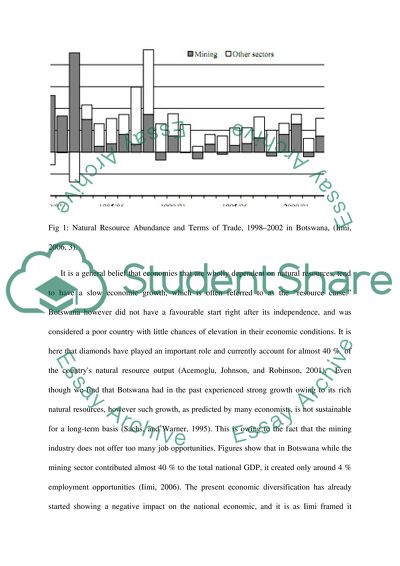Cite this document
(“Management of the Natural Resources by the Government of Botswana Dissertation”, n.d.)
Retrieved from https://studentshare.org/geography/1424611-botswana-wealth-the-issue-and-challenge-of-africa
Retrieved from https://studentshare.org/geography/1424611-botswana-wealth-the-issue-and-challenge-of-africa
(Management of the Natural Resources by the Government of Botswana Dissertation)
https://studentshare.org/geography/1424611-botswana-wealth-the-issue-and-challenge-of-africa.
https://studentshare.org/geography/1424611-botswana-wealth-the-issue-and-challenge-of-africa.
“Management of the Natural Resources by the Government of Botswana Dissertation”, n.d. https://studentshare.org/geography/1424611-botswana-wealth-the-issue-and-challenge-of-africa.


